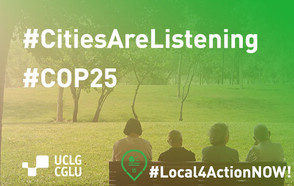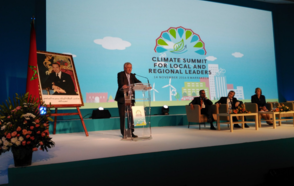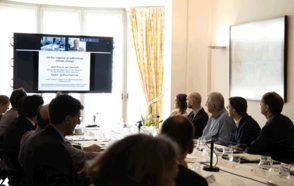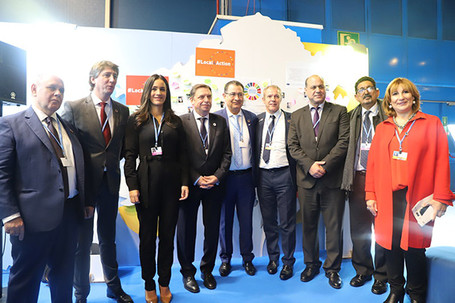
On 11 December, as part of the Climate Summit (COP 25), the High-Level Dialogue of Local Governments on Climate was held. This meeting was the highlight of the Summit in which different spheres of government could have the opportunity to share new ideas towards a joint Climate Action. Before the celebration of this dialogue, there was an opportunity for #LocalActionNow (#AcciónLocalYA) in the Spanish Original in the green zone-Stand of the Spanish Federation of Municipalities and Provinces (FEMP), leaving a mark in recognition of the political commitment of local leaders: to work from a multi-level governance to accelerate the implementation of actions necessary for a total sustainable development of all territories.
Local governments are taking the initiative and leading the Climate Agenda in the forefront, trying to face day by day from the location of the ODS and global agendas to the challenges that the effects of climate change are claiming. However, for global success, national governments still need to realize that it will only come from the local level. That it will only give place at the negotiating table to local and regional leaders, as they are the ones who first know the needs of their communities that they directly represent.
Political will for joint climate action
Cities do not have all the solutions to implement climate actions, but they are a key part of the solution and therefore should already be setting regulation at the decision-making table. Mohamed Boudra, President of UCLG, made it clear from the beginning of the dialogues: "We are and will continue to be active partners in the development and implementation of national climate policy. Local communities that are part of the solution and, if we work together, we can fully play our role as guardians of universal agendas such as climate.
From the national sphere, the Minister of Territorial Policy of Spain, Luis Planas, wanted to ensure his willingness to work with municipalities to ensure the ecological and climatic transition: "Local and regional governments are key in this process of change. Agenda 2030 reflects that all territories must be sustainable and for this we have to respond by cooperating together.
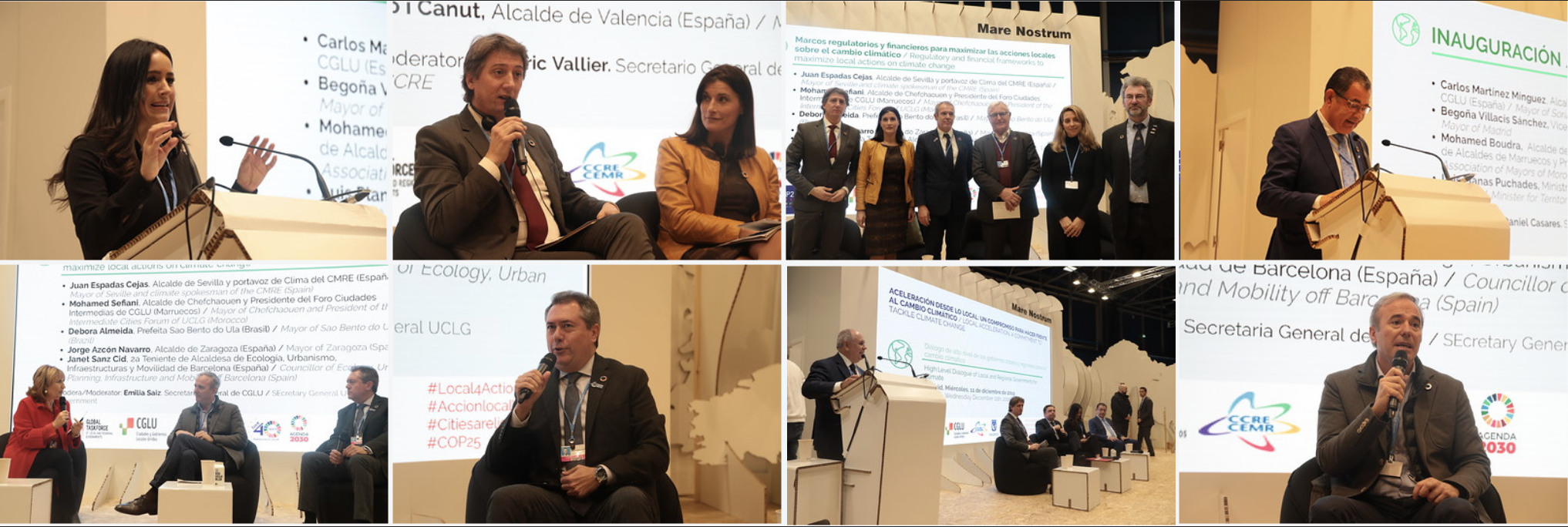
Mayor of Soria Carlos Martínez stressed that the political will for development must come with multi-level governance, with more collaborative governance with other actors such as civil society and citizens". In this sense, the Deputy Mayor of Madrid, Begoña Villacís, also said "we mayors are the ones who listen first to people, those who know the needs. When we speak of a climate emergency, we are the vanguard in improving the quality of life of our neighbors.
Steven Heddle of the Scottish Convention of Local Authorities (COSLA), highlighted some ideas for the joint way forward to get to #COP26 in Glasgow with more local leaders at the climate negotiating tables.
Mayor of Valencia, Joan Ribó further argued for local and regional governments to have "sufficient legislative capacity to be able to promote measures such as proximity trade and food of km0 so that from the mayors we can contribute to the climate with food security for the community. It is through local financing we can generate and positive impact and the first steps to revert the situation to a more sustainable way of life. For this reason, as Andrea Cuba of the Municipality of Lima stated that "decentralizing resources is key for mayors to be able to create a more sustainable planet from our city.
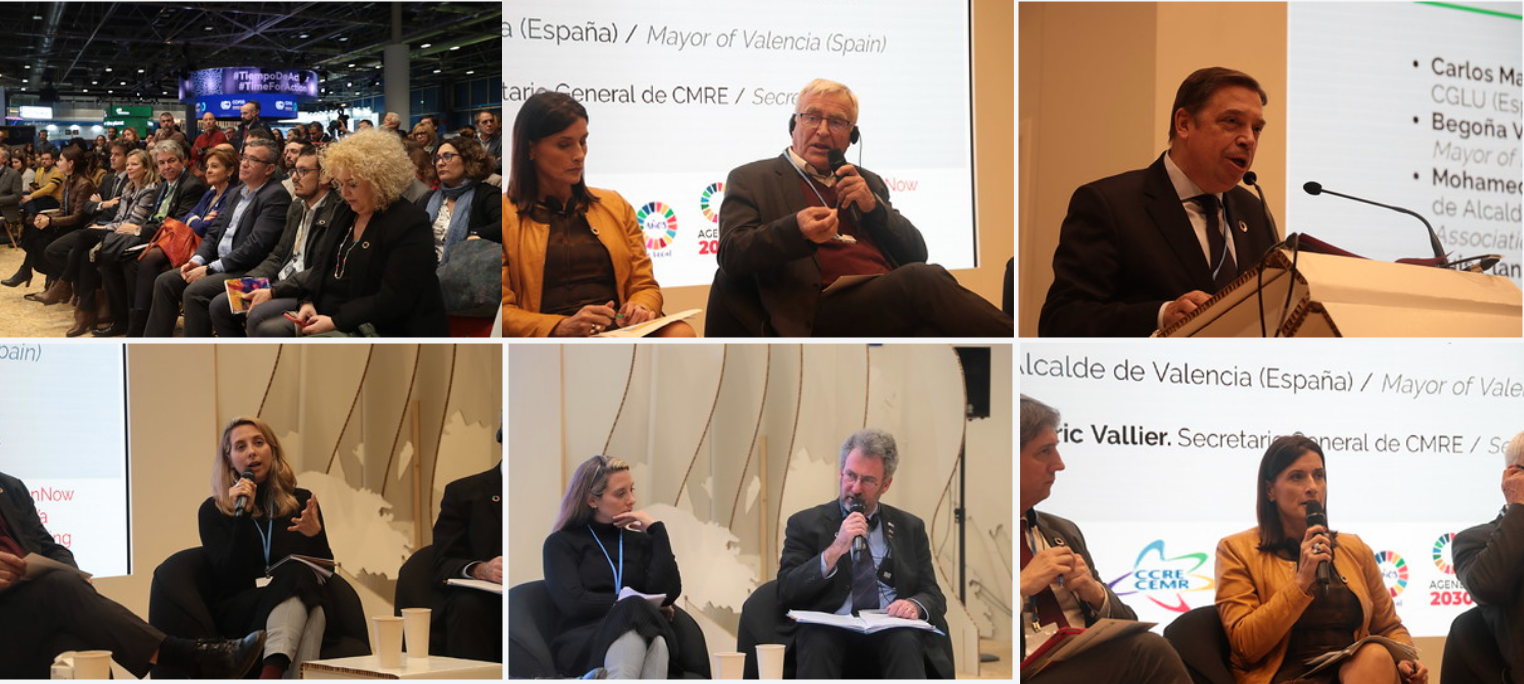
However, to claim this truth with other actors and with civil society, it is from education, culture, citizen participation that by having committed citizens we will also achieve that cities are considered in global agreements. Mayor of Santander Gema Igual shared that "us mayors must involve the community in this ecological transition that we need. To make the cities of the future with our citizens, to create friendly and sustainable cities with the dreams of all and without leaving anyone behind".
Capacity building and investment for sustainability and local innovation
In the second international dialogue the Mayor of Seville, Juan Espadas, demanded the need for more powers pointing out that "At the level of financing, we need additional resources in the cities and for this we would have to reach this great political agreement to prioritise the fight against climate change from the local level". The Mayor of Zaragoza, Jorge Azcón, wanted to reaffirm this idea by saying that "we mayors have a great responsibility, but we do not have the necessary resources to deal with the climate emergency and yet we are the first to respond".











